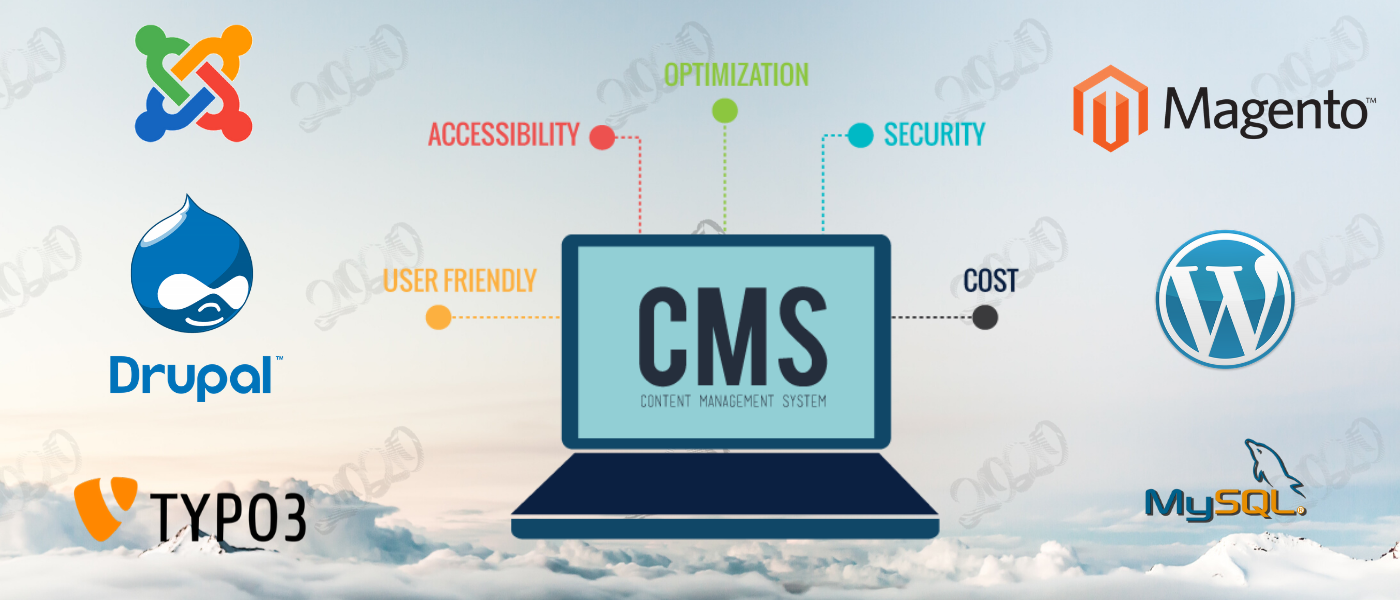
- May 21, 2020
- Category: Content Management
CMS or the content management system is now almost used in all the organizations for adding, publishing, and modifying the website content. The user can easily do this without having any programming knowledge, thus making it convenient for the employees in an organization.
But how do you pick the right CMS that matches your business requirements as well as your budget requirements?
There are specific features that have to be looked for:
- User Friendly: This is one of the important characteristics that have to be looked for. When employees in an organization are not comfortable in using that system, then it can affect the productivity of the organization. In the marketing department, almost all the members like the SEO executives, writers, and others manage the website content; it is, therefore, necessary to have a content management system that can be managed by all of these employees.
- Pricing of the System: The pricing of the system plays a major role in deciding whether the software can be considered for the organization. If you are a growing organization, then you would surely look for the CMS that fulfills the basic requirements of your organization and is available at a standard budget, but still the cost might depend on many other factors. It might depend on the open-source CMS, on-premise CMS and cloud-based CMS. The on-premise CMS are considered cheaper as compared to cloud-based CMS.
- Flexibility: The CMS should provide you the right flexibility to change the content as per your requirements whenever needed. The user should be able to update the content to make it mobile-responsive. This is a mandatory requirement if you want to provide a great user experience.
- Scalability: Scalability is another important feature to look for in a good CMS. While starting off as a small business, you would have basic requirements, but as the business grows, your requirements might increase. In such a scenario, you should have a scalable CMS for example the CMS should be able to run in a cloud environment. Cloud, which is increasingly used in many organizations, has become an essential system in businesses. It is, therefore, advisable to have CMS that integrates well with the cloud.
- Security: Security is needed in every organization. You need to check the security feature, while choosing the content management system. So, check whether the CMS that you are going to finalize has sufficient security features making it efficient to ward off any threats.
Find out some of the top CMS that will be a popular choice in 2020:
- Joomla: Joomla is one of the top CMS to look out for in 2020. This open-source platform has many extensions and templates. It can help both the experts and the new users. The platform is written in PHP and supports more than 70 languages. The major features of Joomla are that it has menu management, article management, user management, media manager, custom fields, content versioning, editor buttons, Jlayouts, template assignment, cache management, etc. The benefits which it provides are that it has a free platform, is SEO-friendly, is easy to use. You can use it for free.
- Drupal: Drupal is also another popular CMS.It provides the right flexibility, and has a secure system. The key features of Drupal are that it supports multilingual sites, provides an advanced user management system, has a complete taxonomy system, gives the right scalability, has increased usage of HTML5, helps to manage configuration, among others.
The major benefits that Drupal provides are that its customization options, and its community feature. The cost of implementing Drupal in large projects with lots of custom development and workflow can cost around $100,000.
- TYPO3: This enterprise management system helps the majority of the e-commerce platforms and large organizations. The features that TYPO3 has are good integrated rights management, a wide range of functions, and its flexibility to integrate well with the other customer relationship management solutions. The benefits of TYPO3 are the well kind of support they provide, the good number of extensions it provides, helps to change the page structure, etc.
- Magento: Magento is another e-commerce platform written in PHP. The features of this platform are that it is completely SEO centered, provides order management, site management, customer service and international support, helps to track, analyze and report. The significant benefits that a user gets by using Magento are its mobile-friendly configuration system, secure third party integrations, advanced SEO system, multifaceted content management system, among others.
The pricing for the hosting of Magento website varies among different providers. The installation costs can range from around $22,000 to $190,000 every year.
- WordPress: This open-source CMS is written in the PHP and works well with the MariaDB database, and MySQL. The features of WordPress are that it helps in the user management, has an easy theme system, and is simple to use. The design of the website is completely customizable, and the user can have absolute control over their site, a must-need for the user.
The benefits of using WordPress are that it is user friendly, and is flexible to the ever-changing needs. The search engines also love the sites that are developed on WordPress.
The WordPress hosting cost is about $3.95 per month, the pre-made themes would cost around $200 as one-off charge.
Conclusion:
CMS offers the right solution to the organization for running the business process efficiently. It helps the companies to add the accurate content on their website that helps to draw relevant traffic for increased sales and conversions. This is the primary reason that companies should select the right CMS aligned with their business requirements and increase revenue.
